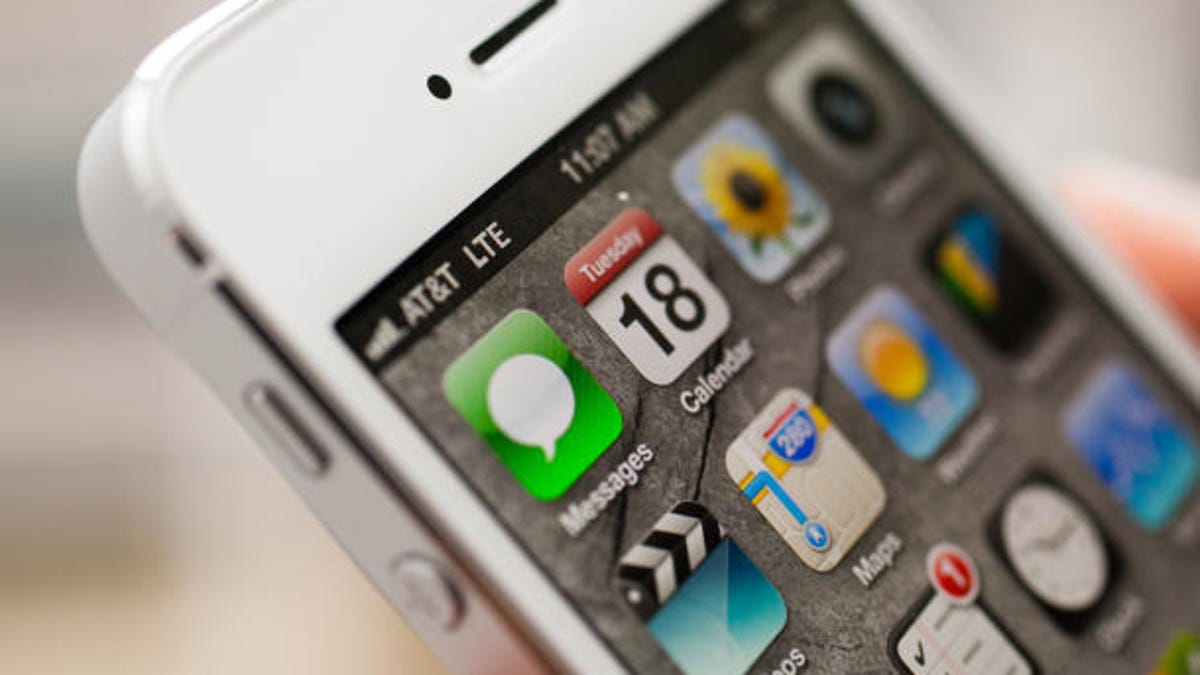Apple ordered to help unlock San Bernardino shooter's iPhone
The court ruling is the latest in the tug-of-war between tech companies and law enforcement officials over the use of encryption.

Apple has been ordered to unlock the iPhone used by one of the shooters in the San Bernardino, California, massacre in December.
Apple has been ordered to help US investigators sidestep protection on an iPhone used by one of the shooters involved in the San Bernardino massacre, the latest in the battle between tech companies and law enforcement over the use of encryption.
A federal judge ruled Tuesday the Cupertino, California-based company must supply the FBI with technical assistance within five days so that it can access encrypted data on the iPhone used by Syed Farook.
Farook and his wife, Tashfeen Malik, killed 14 people on December 2 in San Bernardino, California, before dying in a gun battle with police.
The order was issued after federal prosecutors said Apple had declined to assist law enforcement in accessing data on the county-owned work phone. Prosecutors said the data may yield information about who might have helped the pair carry out the massacre.
"Despite ... a warrant authorizing the search," prosecutors wrote in a 40-page filing detailed by NBC News, "the government has been unable to complete the search because it cannot access the iPhone's encrypted content. Apple has the exclusive technical means which would assist the government in completing its search, but has declined to provide that assistance voluntarily."
Apple didn't immediately respond to a request for comment.
Tuesday's ruling comes amid a mounting war of words between tech companies and policy makers, who contend that terrorist groups are benefiting from encryption, the technology that jumbles communications and files so that only the intended recipient can read them. Tech companies have become increasingly diligent about including encryption in products and services in the wake of revelations about US government surveillance programs from documents leaked by former NSA contractor Edward Snowden.
After deadly attacks in Paris late last year, questions arose about whether the technology industry has a duty to help the government view encrypted conversations in the name of stopping terrorism. Tech companies have countered that it's impossible to let government agencies break encryption without letting criminals do the same.
Apple's iMessage text message program uses encryption, as does Facebook's WhatsApp. Google, Yahoo and other tech companies have begun scrambling information sent between their servers. These security features, which aim to keep prying eyes from seeing what's going on inside, are often now turned on by default and easy to use.
The encryption used in Apple's chat service has stymied attempts by federal law enforcement agents to eavesdrop on suspects' conversations, an internal government document revealed in 2013. Discussing a February 2013 criminal investigation, an internal Drug Enforcement Administration document seen by CNET warned that because of the use of encryption, "it is impossible to intercept iMessages between two Apple devices" even with a court order approved by a federal judge.
The iPhone prosecutors are seeking the data from an iPhone that belongs to Farook's employer, the San Bernardino County Department of Public Health. The county has consented to the iPhone's contents being searched. But the phone is password protected, and investigators worry that the handset's encryption will erase its data after too many unsuccessful attempts to unlock the device.
"Since the terrorist attack in San Bernardino on December 2, 2015, that took the lives of 14 innocent Americans and shattered the lives of numerous families, my office and our law enforcement partners have worked tirelessly to exhaust every investigative lead in the case," US Attorney Eileen M. Decker said in a statement. "We have made a solemn commitment to the victims and their families that we will leave no stone unturned as we gather as much information and evidence as possible. These victims and families deserve nothing less."

